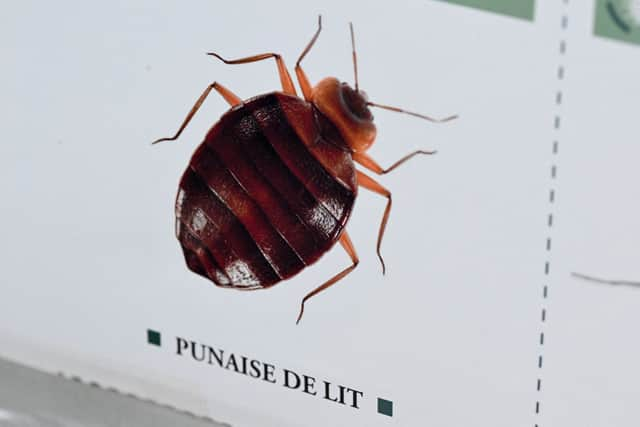Bed bugs: Could insects come to London from Paris, France and how to prevent infestation
and live on Freeview channel 276
A bed bug infestation in one of the most famous tourist locations in Europe - Paris - has sparked worries that thousands of them may soon be travelling to the UK. Social media users have been horrified by bed bug footage, which has caused some of them to avoid sitting on the cloth seats on the insect-infested Parisian subway, and instead stand.
Londoners are perhaps most anxious of a potential UK outbreak, with Paris only a two-hour Eurostar ride away, leading to fears of a bed bug infestation in the city that could spread to rail services and tube trains. But where do bed bugs come from? What sort of habitats do they prefer to inhabit, and how can you avoid them setting up shop in your own home? Here is everything you need to know.
Advertisement
Hide AdAdvertisement
Hide AdWhere do bed bugs come from?


Bed bugs are believed to have been present for thousands of years, and they have been found in various parts of the world. They were largely eradicated in many developed countries through the widespread use of pesticides in the mid-20th century but have made a resurgence in recent years. They can be found in places where people gather or live, including homes, hotels, hostels, apartments, dormitories, and even public transportation.
They are known to be hitchhikers and can be transported into homes and other environments by attaching themselves to people, luggage, clothing, or other personal belongings. Being small, reddish-brown insects that feed on the blood of humans and animals, bed bugs prefer environments where they can easily feed. They are primarily attracted to warmth, carbon dioxide (exhaled by humans and animals) and the scent of blood.
They tend to hide in cracks, crevices, and seams during the day and come out at night to feed, and so homes that are cluttered and provide numerous hiding spots, such as cracks in walls or furniture, are more susceptible to infestations. Additionally, homes in which people frequently come and go (e.g., hotels, apartment buildings) may be at higher risk, as bed bugs can easily hitchhike on clothing and luggage.
How can you prevent bed bugs from entering your home?
It's important to note that bed bugs are not necessarily associated with poor hygiene or cleanliness, and can infest both clean and cluttered environments. Bed bug infestations can occur in a wide range of settings, from budget motels to upscale hotels, apartments and even single-family homes. While bed bugs are more common in densely populated areas, they can infest any location.
Advertisement
Hide AdAdvertisement
Hide AdPreventing bed bugs from entering your home can be challenging, but it's not impossible. Here are some tips to reduce the risk of infestation:
- Inspect second-hand furniture: Before bringing used furniture or mattresses into your home, carefully inspect them for signs of bed bugs. Avoid picking up discarded items from the street without proper inspection.
- Be cautious while travelling: When staying in hotels or other accommodations, inspect the mattress, headboard, and surrounding areas for signs of bed bugs. Keep your luggage off the floor and use luggage racks or plastic bags to protect your belongings.
- Regularly wash and dry clothing and bedding: High heat kills bed bugs, so regularly washing and drying your clothing, bedding, and curtains at a high temperature can help prevent infestations.
- Seal cracks and crevices: Seal any cracks or crevices in walls, baseboards, and furniture where bed bugs could hide.
- Use protective covers: Consider using bed bug-proof mattress and box spring covers to prevent bed bugs from entering or escaping your bedding.
- Be cautious with used books and electronics: Bed bugs can hide in the spines of books and electronics. Inspect these items before bringing them into your home.
Prompt action is crucial if you suspect a bed bug infestation, as they can reproduce quickly and be difficult to eliminate once established. If you suspect you have a bed bug infestation in your home, it's advisable to contact a pest control professional who has experience in dealing with bed bugs, as effective treatment often requires specialised knowledge and techniques.
Comment Guidelines
National World encourages reader discussion on our stories. User feedback, insights and back-and-forth exchanges add a rich layer of context to reporting. Please review our Community Guidelines before commenting.
